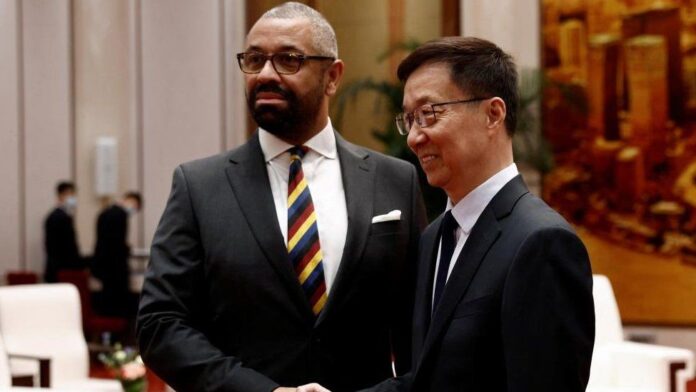The UK government is under increasing pressure to take a tougher stance against Beijing following the arrest of a parliamentary researcher accused of spying for China. Senior Conservative MPs are calling for China to be classified as a threat, a move supported by some cabinet ministers. Rishi Sunak expressed concerns about Chinese interference to China’s premier during the G20 summit in India.
China has denied spying accusations, dismissing them as “malicious slander. The Metropolitan Police confirmed that two men were arrested under the Official Secrets Act in March. Both were released on bail, and the Met’s Counter Terrorism Command is investigating. The researcher in question reportedly had connections to several Conservative MPs, including security minister Tom Tugendhat and foreign affairs committee chairwoman Alicia Kearns.
The arrest has reignited the debate within the Conservative Party about whether the UK should adopt a tougher stance on China. Some Tories advocate classifying Beijing as a threat, a step resisted by government ministers. Senior Conservative backbenchers, such as former leader Sir Iain Duncan Smith and MP Tim Loughton, are pushing for action. Duncan Smith emphasised the deepening threat posed by the Chinese Communist Party (CCP) under President Xi, while Loughton highlighted the CCP’s reach into British institutions.
While some cabinet ministers support stricter measures, including Home Secretary Suella Braverman, Business Secretary Kemi Badenoch cautioned against using provocative language, suggesting it would escalate tensions. Badenoch argued that the UK’s current position, acknowledging China as an “epoch-defining challenge,” aligns with the stance of British allies.
Rishi Sunak conveyed “very strong concerns” about interference in British democracy to China’s Premier Li Qiang but stressed the importance of active engagement rather than sideline criticism.
This incident underscores the complex relationship between the UK and China, balancing economic interests, national security, and concerns about foreign interference. The government must navigate these challenges while responding to growing calls for a tougher stance on China.






















